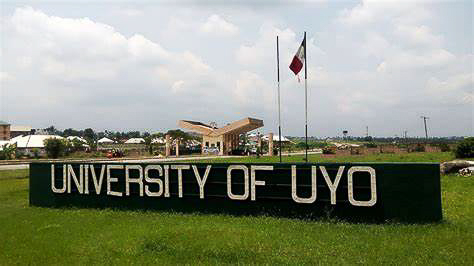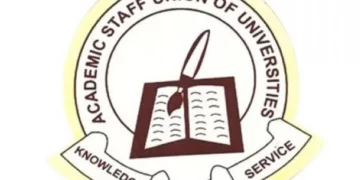A University of Uyo (UNIUYO) Professor of Economics, Emmanuel Onwioduokit, has expressed fears over the wobbling and tumbling economy of Nigeria, warning that unless the federal government summoned enough courage to fight corruption, wanton fiscal indiscipline pervading the system will continue to fester with attendant humanitarian impacts.
He proffered this at the 3rd in a series of Public Lectures tagged “Fiscal Indiscipline and Public Sector Accountability in Nigeria” at the Onyema Ugochukwu Hall of the Town Campus, Ikpa Road, Uyo, the Akwa Ibom State capital.
Prof Onwioduokit, a former commissioner for economic development in the state and the guest lecturer, blamed the problem on “overspending, inefficient resource allocation, and disregard for sound fiscal principles, thereby creating fiscal imbalance manifesting in budget deficits, rising debts, inflationary pressures, and unsustainable policies.”
According to him, weak budgetary management in Nigeria is added to this, which he described as the chief driver of fiscal indiscipline, constantly threatening the nation’s economic stability.
He pointed out that “corruption, inadequate checks and balances, and the desire to meet political objectives continuously exacerbate fiscal indiscipline, resulting in high inflation, excessive debt, and dwindling investor confidence, all compromising the country’s long-term capacity to address development challenges.”
While expressing disgust over Nigeria’s attitude toward borrowing funds to finance recurrent expenditures like salaries and subsidies instead of capital projects to generate long-term returns, the economist noted that “borrowing can only stimulate growth if directed towards productive investments that align with broader public interests.”
Therefore, he proffered that “to combat fiscal indiscipline, it would be crucial to improve institutional frameworks and strengthen anti-corruption measures in the country by enforcing public audits, performance evaluations, and civil society engagement to provide checks on government actions.”
“Fiscal discipline and public sector accountability are essential for Nigeria’s economic stability and sustainable growth, as strengthening accountability will curb corruption, enhance resource management, and promote efficient allocation of funds toward projects that drive developments,” he stressed.
He commended the Dean of the Faculty of Management Sciences of the institution, Prof. Uduak Ubom, for granting him the opportunity to x-ray and articulate the issues of fiscal mismanagement and the need for robust public sector accountability, which, when sufficiently tackled, remain central to Nigeria’s socio-economic progress.





